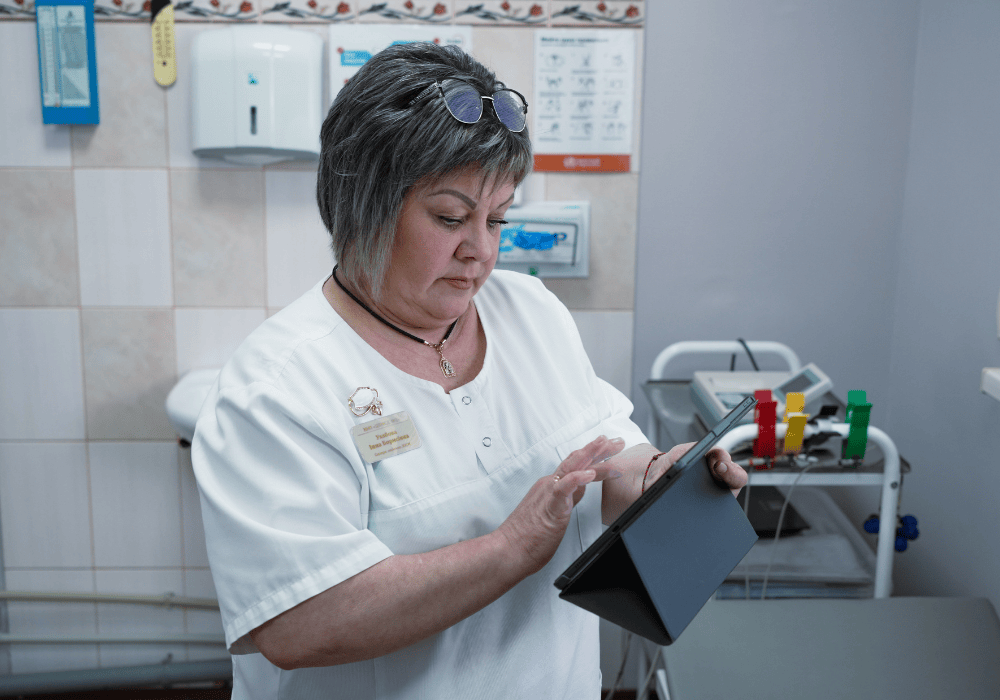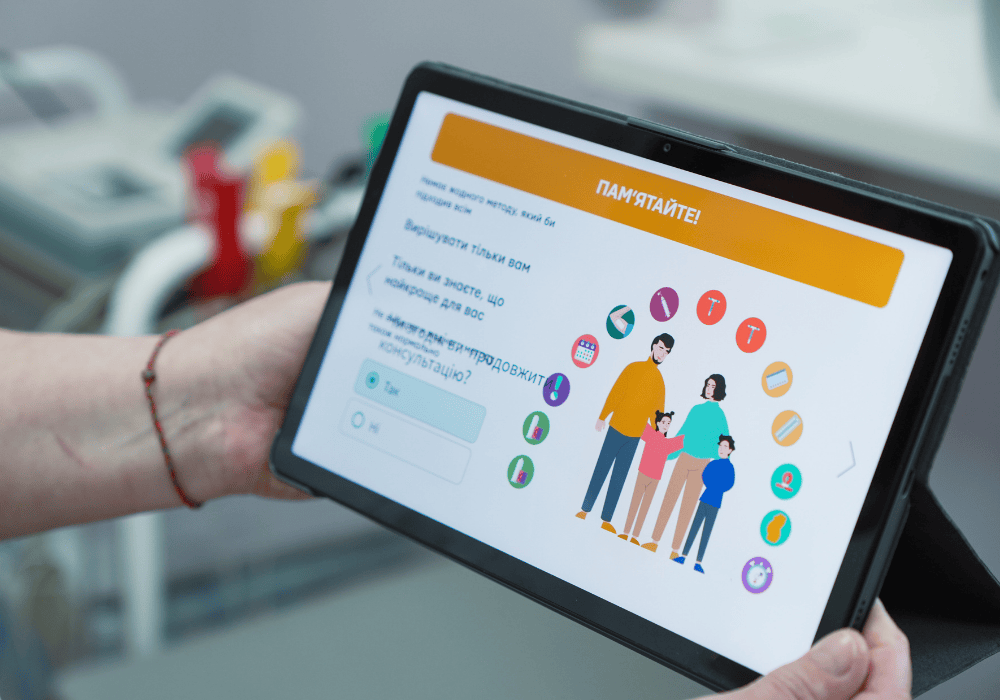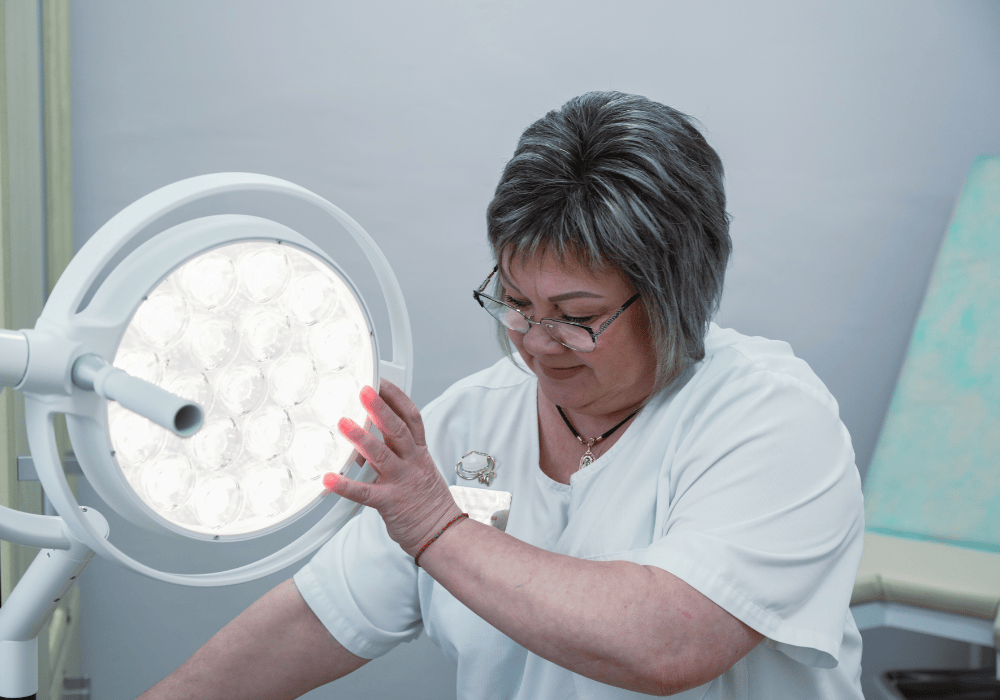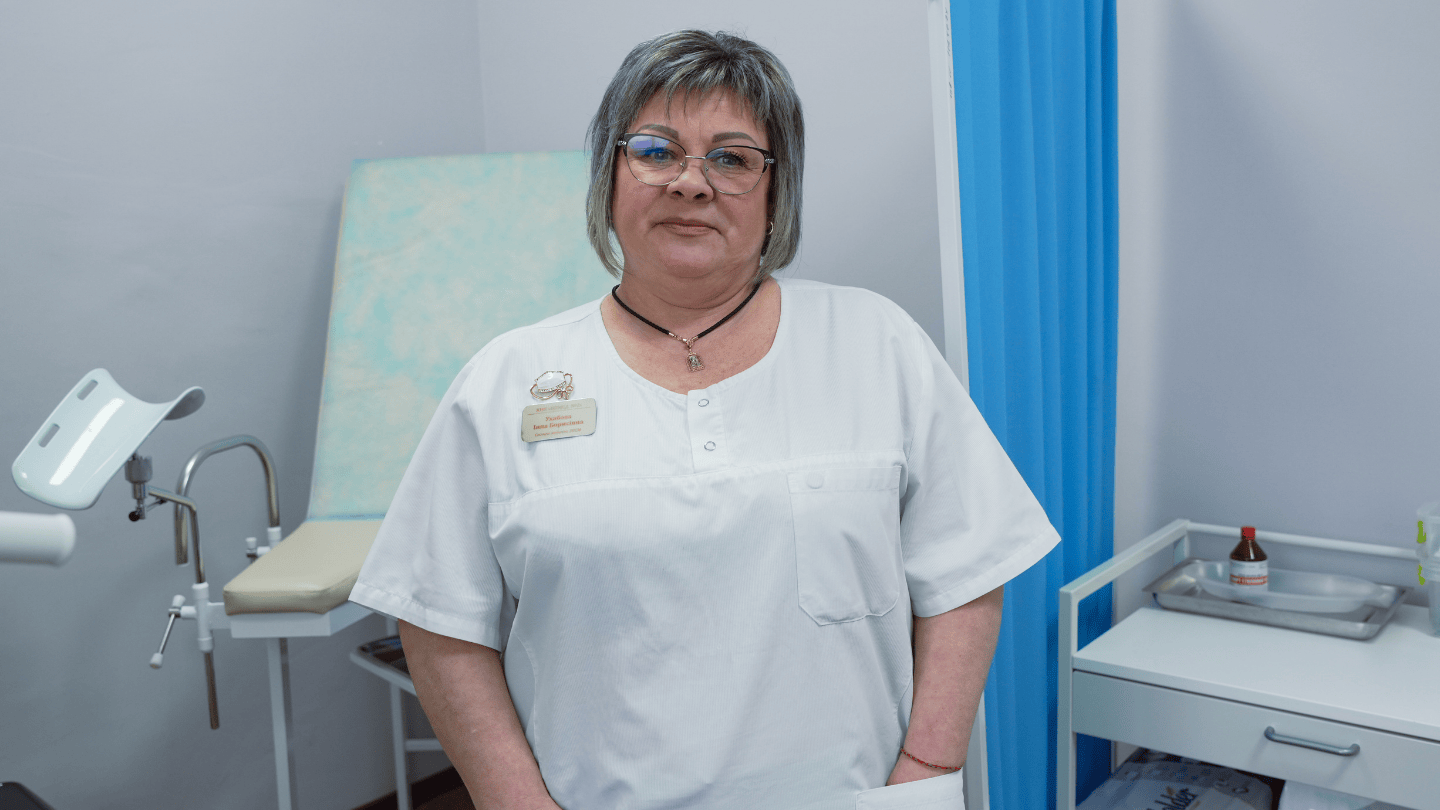ZAPORIZHZHIA, Ukraine – The Ukrainian city of Zaporizhzhia has been under attack almost since the start of Russia’s full-scale invasion in 2022. Critical infrastructure, including hospitals and clinics, has been repeatedly targeted by Russian artillery. Amidst this violence, UNFPA – the United Nations sexual and reproductive health agency – has played a pivotal role in ensuring women and girls near the front lines continue to have access to essential sexual and reproductive health services.
A UNFPA-supported programme aims to provide women with family planning consultations, which help not only women who are considering having children but also those who want to make informed choices about contraception and other aspects of their reproductive health.
“The team of trainers was incredibly strong, and it was a pleasure to hear new information presented in such a way,” said Inna Ukhabova, a nurse and family planning counsellor at the Livoberezhny Primary Healthcare Centre in Zaporizhzhia.
Inna studied midwifery and had been with the hospital for many years before taking on the role of a family planning consultant last year. She plays a key role in consultations for women who wish to understand their reproductive health and get access to the necessary resources, including contraception options like oral and injectable contraceptives and intrauterine devices (IUDs).

Although the ongoing war has deeply impacted daily life in Ukraine, Inna and her colleagues remain committed to their work: delivering high-quality care to women and girls and ensuring that their health remains a priority.
The medical centre in Zaporizhzhia is a hub for sexual and reproductive health services. It is part of a nationwide programme for cervical oncology screening and HPV vaccination, which allows women to receive services free of charge through referrals from family doctors.

A delicate balance amidst the war
Family planning in Ukraine has become a sensitive topic due to the war. Many women have lost their husbands or are waiting for them to return from the front lines. “There is a lot of pain surrounding the topic of family planning,” Inna said. “Many women are not engaging in sexual activity right now, and some are in mourning for their husbands. We have to be very careful when approaching this subject, as it is not always the right moment to talk about family planning.”
The healthcare staff, including Inna, do their best to approach these topics with compassion and knowledge. They work to explain how family planning is not only about conceiving a child with their partner but also an entry point to a full range of services that support women’s reproductive health and rights, which are often overlooked during times of crisis.

Inna has seen a worrying trend where young women have not prioritized their sexual and reproductive health since the start of the full-scale invasion: “They come for emergency contraception or general consultations and leave. They are not yet interested in deeper health conversations.”
Prolonged stress can have serious consequences for women’s health. Inna pointed out that there have been increasing reports of younger women with irregular menstrual cycles or women entering menopause earlier than normal due to the stresses of living through the war. “This life experience of constant explosions and fear has left a serious mark on people’s lives, and we are seeing increased health problems, including endometriosis and cancer,” Inna noted.
Looking to the future: Hope for demographic recovery
The ongoing war in Ukraine has created significant challenges not only in terms of physical security but also in population dynamics. It has exacerbated pre-existing demographic trends, including low birth rates, emigration, and an ageing population. Family planning helps strengthen Ukraine’s resilience to the demographic challenges it is facing. Better access to family planning information and services empowers individuals, especially women, to make informed decisions about their bodies and futures. This translates into better health outcomes, higher educational attainment, and greater economic participation, all of which are fundamental components of human capital development. When a society has strong human capital, it is more productive, better equipped to innovate and adapt to demographic change, and - ultimately - more likely to prosper.
Inna remains hopeful for the future, despite the challenges. She encourages women to start taking care of their health from a young age, to not be afraid of visiting gynaecologists, and to explore contraceptive options without fear or hesitation. “I wish for patience, strength, and faith in victory. I hope that after the war, women will begin to focus on their health more and more,” she said optimistically.
UNFPA, together with front-line healthcare staff like Inna, are working to ensure that essential sexual and reproductive health services continue even through difficult times. While the war may have caused tremendous hardships, the unwavering support for women's health and family planning remains a beacon of hope for Ukraine’s demographic recovery and long-term resilience.


